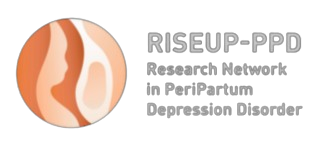Publication Guidelines

Nerea Almeda, PhD
Nerea Almeda, PhD, is a senior lecturer of clinical psychology at Loyola University. She is a health psychologist and a member of the American Psychological Association. She holds a PhD in Data Science. She focuses her research on mental health care management and policy in public health. She is interested in mental health service research and clinical psychology. She has participated in European and national projects focusing on mental health services evaluation, financing systems and urban planning. She has received four research prizes awarded by the American Psychological Association in 2018, 2019 and 2022 for her contribution to international mental health services research and psychological impact of COVID-19.
Babette Bais, PhD
As a PhD student, Babette Bais studied antepartum depression, where she focused on sleep, seasons, and the effects of light therapy. After her PhD, she worked as a postdoctoral researcher, continuing her research in mental health and sleep in early pregnancy. Currently, she works as a scientific advisor in a peripheral hospital. Alongside, she works on data from her PhD research and supervises a PhD student studying preconception care.


Hilmar Bijma, MD
Dr. Bijma is an obstetrician in fetal and maternal medicine within the Obstetrics and Gynecology Department at Erasmus University Medical Center (MC) in Rotterdam, Netherlands. Her areas of expertise include preconception and pregnancy in patients with psychiatric illness, illicit substance and alcohol misuse and psychosocial adversity. The primary aim of her research is to examine the impact of adversity and psychiatric illness during pregnancy on fetal and early neonatal development, and to translate that knowledge into innovative healthcare with multi-sectoral integrated care paths. She has developed and implemented several health care innovations aimed at improving access to care and fostering a multi-sectoral approach. She has been the Principal Investigator (PI) and Co-Investigator of several studies involving the epidemiology of maternal psychiatric disease, and how adversity impacts impact fetal and neonatal (brain) development. Adequate diagnosis and an integrated approach to these issues greatly improves not only maternal health but is needed to provide the best chances for the child to live a long and happy life. She holds several positions in which she advises local and national government on health care policy for women and their families facing adversity during pregnancy. In addition, she is the author of the book Decision-making after Ultrasound Diagnosis of Fetal Abnormality and have contributed to topics of psychiatric disease and pregnancy, psychosocial adversity and prenatal counseling to several international books.
Rafael A. Caparros-Gonzalez
Rafael A. Caparros-Gonzalez does research on the impact the environment (including perinatal stress, post-traumatic stress disorder after birth and the COVID-19 pandemic) have on Maternal, Fetal and Infant outcomes. Currently holds a position as Assistant Professor at University of Granada (Department of Nursing) Background in Bsc Psychology (2012), Bsc Nursing (1998), Bsc Midwifery (2005), MsC in Research Designs (2013), PhD Psychology (2018), PgDip Epidemiology & Clinical Research (2022)
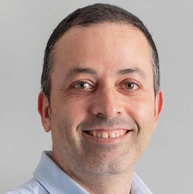
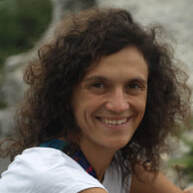
Magdalena Chrzan-Dętkoś
Magdalena Chrzan-Dętkoś - post - doctoral researcher at the Institute of Psychology, University of Gdańsk, Poland, psychologist, psychotherapist, and coordinator of the Next Stop Mum PPD prevention project in the north of Poland.
Miguel Cordero, PhD
Dr Cordero was born in Chile. He practiced clinical psychology at hospital paediatric services for almost one decade in one of the most disadvantaged areas from Santiago Chile. He moved to the UK in 2013, awarded his Ph.D. at the Population Health Sciences Institute (former School of Social and Community Medicine) at the University of Bristol in 2018. In Chile, he holds a Master’s in Behavioural Neuroscience from the University of Chile and clinical training on child psychology. Currently he is a postdoctoral researcher at the Centre for Research in Food Environments and Prevention of Chronic Diseases - CIAPEC (www.ciapec.cl) based at the Institute of Nutrition and Food Technology (INTA) of the University of Chile. His research focuses on early determinants of mental health (e.g. nutritional, parenting). He is a Senior Epidemiologist at the Department of Statistics, Analysis and Management of Health Information at the South East Metropolitan Health Service in Santiago, Chile (www.ssmso.cl) where he works using health data for analysis and epidemiological research studying maternal health, and children's health.


Ana Ganho Ávila, PhD
Ana Ganho Ávila, PhD is a licensed clinical psychologist, specialized in clinical and health psychology and psychotherapy. Ana completed her PhD in basic psychology in 2016, about the neuropsychophysiological correlates of anxiety. Ana dedicated her post-doctoral research activity to the study of the neuronal correlates of mood and anxiety disorders and the applicability of non-invasive brain stimulation in these clinical conditions. Since 2018, Ana has been studying the neurocognitive profiles of peripartum women and the applicability of non-invasive brain stimulation in perinatal mood and anxiety disorders in combination with evidence-based psychological interventions. She is currently a researcher at the Research Center in Neuropsychology and Cognitive Behavioral Intervention [CINEICC] at the Faculty of Psychology and Educational Sciences of the University of Coimbra, Portugal and a fellowship recipient from the Portuguese Foundation for Science and Technology. Additionally, Ana is the Chair and Scientific Representative of the Research Innovation and Sustainable Pan-European Network in Peripartum Depression Disorder [PPD] COST Action held for funding between 2019-2023 by the COST Association, European Union funded. She has co-authored several international consensus articles, and experimental and review publications in the fields of non-invasive brain stimulation and perinatal mental health.
Simone Honikman
Simone has a medical degree and an MPhil in Maternal and Child Health from the University of Cape Town (UCT). She has worked as a medical officer in psychiatry, paediatrics, obstetrics and gynaecology and HIV medicine. In 2002, she founded the Perinatal Mental Health Project, currently located within the Alan J Flisher Centre for Public Mental Health, Department of Psychiatry and Mental Health at UCT. She has collaborated in several global mental health research consortia and has published nearly 50 journal papers and book chapters on maternal mental health. Simone writes policy documents and guidelines, engages in advocacy work and multi-media resource development for maternal mental health in low resource settings. She conducts trainings and develops capacity building resources for a wide range of service providers and organisations. She offers executive oversight of an integrated and comprehensive mental health service model that operates at a community-based midwife unit in Cape Town. She is actively involved with the International and Africa chapter of the Marcé Society for Perinatal Mental Health, the Global Alliance for Maternal Mental Health and the African Alliance for Maternal Mental Health and has contributed to several World Health Organisation initiatives. Simone is an Ashoka lifelong fellow.
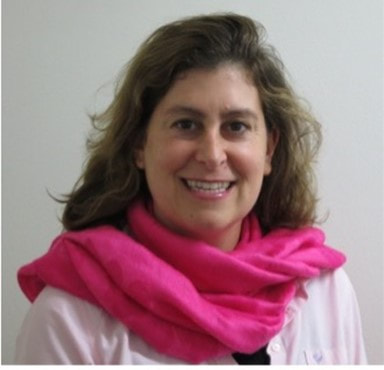

Sarah Kittel-Schneider, MD
Sarah Kittel-Schneider is an adult psychiatrist, vice director and Professor of Developmental Psychiatry in the University Hospital of Würzburg, Department of Psychiatry, Psychotherapy and Psychosomatic Medicine. She is, amongst others, the head of the psychiatric mother-(father-)-child unit, she supervises a specialized ward for mood disorders in young adults and the outpatient clinics for adult ADHD and bipolar disorder as well as early recognition of mood and psychotic disorders. Her research focus is on psychosocial and biological risk factors of perinatal mental disorders and multimodal biomarkers of ADHD and mood disorders. Additionally, her research group investigates human induced pluripotent stem cell derived models of mental illnesses. Sarah is a board member of the national and the international Marcé-Society for Perinatal Mental Health.
Liudmyla Krupelnytska, Dr of Sci. (Psychology), Prof.
Liudmyla Krupelnytska is the Head of the Department of Psychodiagnostics and Clinical Psychology at the Faculty of Psychology, Taras Shevchenko National University of Kyiv, Ukraine. She is the guarantor of the Master's program Clinical Psychology with the Basics of Psychotherapy. Liudmyla has extensive experience in the fields of psychodiagnostics, psychological counseling, and psychotherapy. She is a member of the editorial board of the Bulletin of Taras Shevchenko National University of Kyiv. Series: Psychology. She has publications on the topics of clinical psychology, in particular, addiction to psychoactive substances, anxiety and depressive disorders, suicidal behavior. Liudmyla is a member of the working group COST Action Riseup-PPD Research Innovation and Sustainable Pan-European Network in Peripartum Depression Disorder (CA18138).


Maria Marti-Castaner
Maria Marti-Castaner is an Assistant Professor at the Danish Center for Migration, ethnicity, and Health, at the Department of Public Health at the University of Copenhagen; She is trained as a Clinical Psychologist, holds an M.S. in Psychology (University of Barcelona), a Ph.D. in Health Psychology (Autonomous University of Barcelona), and was a postdoctoral researcher at The Mailman School of Public Health at Columbia University. Maria’s research and practice focus on the study of social determinants of mental health and well-being, particularly among migrant children and their caregivers, and the design and evaluation of mental health and psychosocial interventions that promote mental health. In her most recent project, REFUDEPRE (EU Horizon 2020), she has explored the perinatal mental health of immigrant mothers in Denmark, particularly refugees, its impacts on infant development, and the challenges and opportunities that home visiting presents to support them. She is very interested in reducing inequalities in maternal mental health care and developing strategies and interventions that respond to the needs of immigrant women.
Vera Mateus, PhD
Vera Mateus is currently a research fellow at the Universidade Portucalense Infante Dom Henrique and a researcher at COST Action CA18138 Research Innovation and Sustainable Pan-European Network in Peripartum Depression Disorder (Riseup-PPD). Her current research interests are focused on infant and child's sociocognitive development, especially joint attention, in typical and at-risk samples (e.g., prematurity); the influence of parent-infant relationship on the infant's development; perinatal mental health; and neural processing of social stimuli using functional near-infrared spectroscopy (fNIRS).
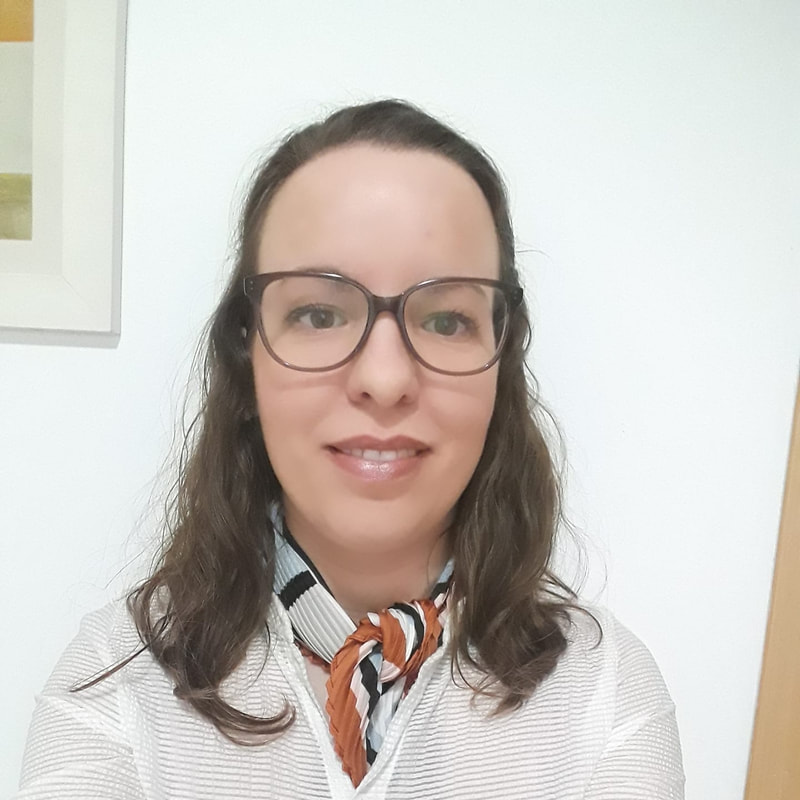
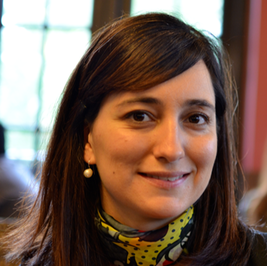
Ana Mesquita, PhD
Ana Mesquita has a BSc in Applied Biology and a PhD in Health Sciences. She is a Principal Investigator at the Psychological Neurosciences Laboratory of the Psychology Research Centre (CIPsi) at the School of Psychology of the University of Minho (https://psychologicalneurosciencelab.weebly.com/). Her expertise is on the neurobiological mechanisms of socio-emotional development in children in different contexts of life (e.g. institutionalized children). Using a multi-level approach she seeks to understand how environment and genetics interact in the definition of behavioral patterns and their neurobiological endophenotypes. More recently, she have widened the focus of her research to epigenetic processes, which translate a more dynamic interaction between genes and environment and which help to explain how life experiences “get under the skin”. To this end, she have used methodologies that cross molecular biology with neurosciences anchored in the perspective of developmental psychopathology. She is also currently the Co-PI of an international prospective cohort study aiming to assess the impact of the COVID-19 pandemic on perinatal mental health (Riseup-PPD-COVID-19), carried out under the Action Cost RISEUP-PPD.
Olha Morozova-Larina
Olha Morozova-Larina is an Assistant Professor at the Kyiv National Taras Shevchenko University, Faculty of Psychology, Department of Psychodiagnostics and Clinical Psychology. PhD in medical psychology (2003). For many years, she has been teaching such disciplines as "psychogenetics", "psychological counseling", "analytical psychology" for bachelor's and master's students of Kyiv National University. Olha is a participant in several research projects, in particular “Mental health of pregnant women and mothers of newborn children in conditions of war in Ukraine”.
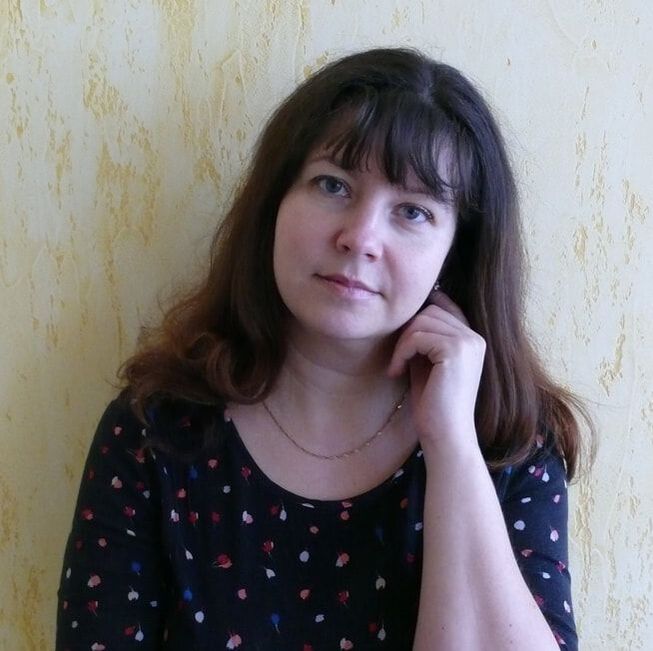

Emma Motrico, PhD
Emma Motrico, Ph.D is associate professor of Developmental Psychology at the Department of Psychology at University Loyola, Seville, Spain. She is also director of the Doctoral School at University Loyola. Her research focuses on prevention of mental disorders, specially depression and anxiety, and the implementation of preventive interventions in health settings. She is the coordinator of the research line of 'Prevention and promotion in mental health' in the LoyolaHealth research group and member of the 'Predictplusprevent' research group. She is the co-chair of the 'Prevention of Perinatal Mental Disorders' Special Interest Group in the International Marcé Society for Perinatal Mental health and the leader of the Task Force 'Perinatal Mental health and COVID-19 pandemic' in the Riseup-PPD Cost-Action.
Sandra Nakić Radoš, PhD
Sandra Nakić Radoš is a psychologist and a researcher with a special interest in peripartum mental health, especially peripartum depression and anxiety during pregnancy and postpartum. She holds a position as an Associate Professor at the Catholic University of Croatia (Department of Psychology). She is a co-founder and the lead of the NGO Centre for Reproductive Mental Health (Zagreb, Croatia).
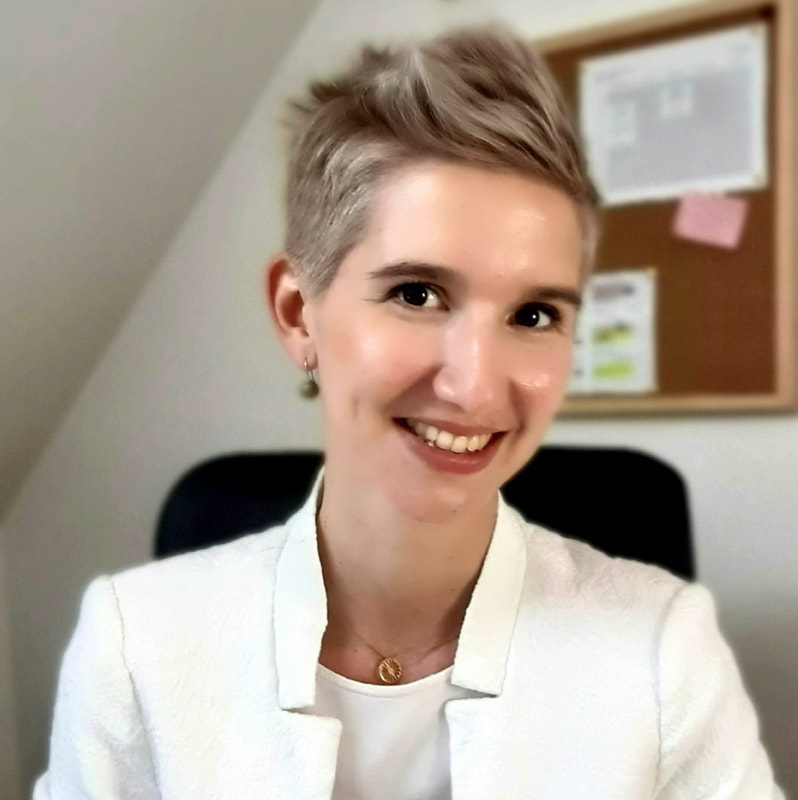

Konstantina Pagoni
Konstantina Pagoni is a licensed psychologist from Greece currently working as a research assistant in the Institute for Medical Sciences at Uppsala University, Sweden. Konstantina graduated in 2020 from the Department of Psychology at the National and Kapodistrian University of Athens. During her undergraduate studies she was an active member of the European Federation of Psychology Students Associations (EFPSA) and she was elected secretary general for the Permanent Committee of Greek Psychology Students (MEFPSE) in 2019. Her keen interest for medical psychology and her three-year volunteering experience at the Children’s Oncological Hospital of Athens, “Elpida”, led her to pursue the Master’s in Health Psychology at the University of Bath, UK, where she was awarded with the Deans Award for Academic Excellence Scholarship. As part of her current position at Uppsala University, Konstantina works as a research assistant in the Mom2B app project about perinatal depression and at the Swedish Gender Dysphoria Study (SKDS).
Dr. Jodi Pawluski, PhD, HDR
Dr Jodi Pawluski (she/her) is a neuroscientist and psychotherapist. She received her MA in Psychology from the University of Toronto, a PhD in Neuroscience from the University of British Columbia and a Habilitation Degree (HDR) in Life Sciences from the University of Rennes 1. She is a member of the Canadian Professional Counsellors Association, an international coordinator for Postpartum Support International and a perinatal counsellor on the Tinto App. For nearly 20 years her research has focused on the neuroscience of motherhood and the effects of maternal mental illness and antidepressant medications on mother and offspring. She regularly speaks nationally and internationally about her research findings, as well as the fascinating effects of parenting on the brain. Dr Pawluski is passionate about increasing our understanding of the amazing things our brains do when we parent and is an advocate for improving perinatal mental health. You can find her talking more about the neuroscience of parenthood with other leading researchers in the field on her podcast Mommy Brain Revisited. For more see www.jodipawluski.com.


Laura Puumala
Laura Puumala is a PhD student in philosophy at the university of Turku. Her research focuses on so-called emergency ethics - a special field in applied ethics concerned with the demands of morality in different catastrophes, crises, and disasters like natural disasters, health care crises, and armed conflicts. Through her research she aims to analyze, conceptualize, and understand the phenomena of moral stress and moral injury, which have to do with extreme feelings of guilt, shame, and regret over conflicted and deeply non-ideal moral decisions in ethical emergencies. Her other research interests include ethics of war, peace and conflict studies and environmental ethics.
María de la Fe Rodríguez Muñoz, PhD
María de la Fe Rodríguez Muñoz is a university professor at the University of National University of Distance Education (UNED). She is also in charge of the Proyecto Mamas y Bebes-España https://blogs.uned.es/mbc/. Her field of research is perinatal mental health with an experience of more than 10 years in this topic. In recent years, she has focused on conducting randomized controlled trials and systematic reviews. Currently she is the Editor in Chief of Clínica y Salud Journal. Prof. Rodríguez Muñoz has published more than 50 articles in high impact journals, including: Psicothema, Journal Affective Disorder, Midwifery, Journal of Transcultural Nursing or Maternal and Child Health Journal. She has participated in different research projects financed in competitive calls. She is currently in the Management Committee COST Research Innovation and Sustainable Pan-European Network in Peripartum Depression Disorder (COST Action CA18138). She has carried out research stays in international centers (George Washington University) that have resulted in articles with international collaborators. Twitter account: @mamasybebes4.


Katarina Savić Vujović, MD, PhD
Katarina R. Savić Vujović, MD, PhD, is Associate Professor at Department of Pharmacology, Clinical Pharmacology and Toxicology, Faculty of Medicine, University of Belgrade in Serbia. She is clinical pharmacologist and specialist in pain medicine. Prof. Savić Vujović has published more than 40 articles in high impact journals. She has participated in different research projects, research of mechanisms of action and drug interactions in nervous system. She is currently in the Management Committee COST Research Innovation and Sustainable Pan-European Network in Peripartum Depression Disorder (COST Action CA18138).
Susanne Uusitalo
Susanne Uusitalo, PhD, MA earned her doctoral degree in philosophy 2015 and is currently a researcher at the Turku Institute for Advanced Studies at the University of Turku, Finland. She is the Head of Finnish unit of the International Chair in Bioethics and Leader of the RISEUP-PPD Working group 4: Ethical standards and procedures for clinical research in PPD. She works with ethics in academia and society, she is for instance a member of the Finnish national committee on medical research ethics and an ethics expert at the Council for Choice in Health Care in Finland. Her interests lie in bioethics and research ethics.

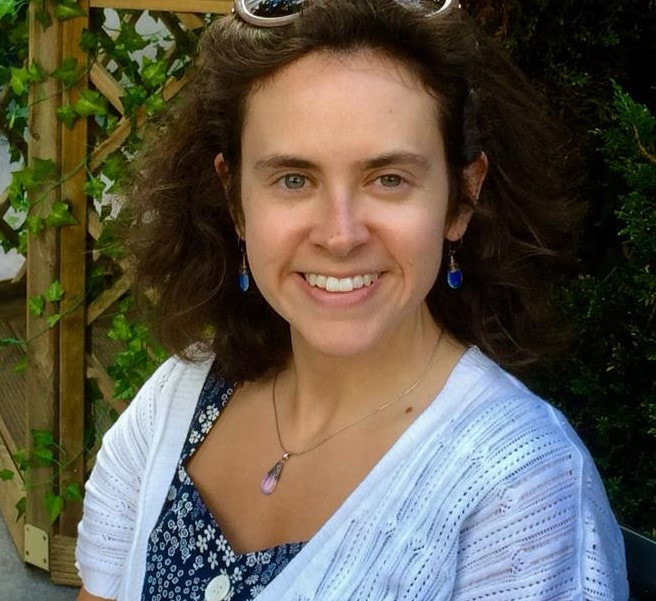
Claire Wilson, MRCPsych PhD
Claire Wilson MRCPsych PhD is an NIHR Academic Clinical Lecturer and Psychiatry Specialist Registrar in the Section of Women’s Mental Health at the Institute of Psychiatry, Psychology and Neuroscience, King’s College London and South London and Maudsley NHS Foundation Trust. Her expertise is in psychiatric epidemiology, having worked on a number of large UK and international birth cohorts to investigate the intergenerational transmission of risk for mental health and disease. She is particularly interested in how multimorbid physical and mental ill health and substance misuse come together in the preconception and perinatal periods to shape offspring outcomes across generations. She is also a keen educator and the academic secretary for the Women and Mental Health Special Interest Group of the UK’s Royal College of Psychiatrists.

